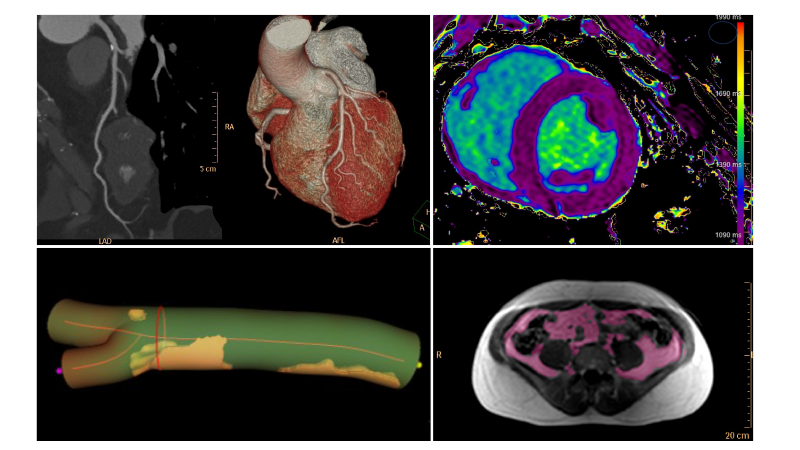Cardiovascular prevention through non-invasive imaging
Accurate cardiovascular diagnosis is essential for guiding appropriate treatment and improving patient outcomes. Our group uses a wide range of non-invasive imaging techniques to study cardiovascular health and the transition from early subclinical damage to established cardiovascular disease. These techniques include state-of-the-art conventional and advanced diagnostic modalities such as ultrasound, cardiac magnetic resonance imaging, computed tomography, and positron emission tomography. We use these imaging modalities to map the origins and development of diverse cardiovascular conditions, identify early disease markers, and monitor the effectiveness of therapeutic strategies (either pharmacological or based on lifestyle interventions) without the need for invasive procedures. Our major areas of interest include human atherosclerotic disease and different aspects of myocardial disease, including the cardiotoxicity of cancer treatments. Our close collaboration with other basic and clinical scientists/physicians includes engagement in major CNIC projects such as the Progression of Early Subclinical Atherosclerosis (PESA) study and a long-standing alliance with the “Heart Failure and Pulmonary Hypertension Translational Research” laboratory. Our multidisciplinary team integrates expertise in biomedical engineering to develop advanced tools for image analysis and interpretation. We strongly believe that early detection is the best way to reduce the burden of cardiovascular diseases, which remain the leading cause of morbidity and mortality worldwide today in both men and women. We are also deeply committed to advancing our understanding of sex-specific differences in the development of cardiovascular disease. Our goal is to encourage early intervention before disease is established, thus offering the potential to slow or even reverse disease progression. Our team creates a welcoming environment for scientists from different disciplines who share our goals and vision.







